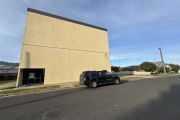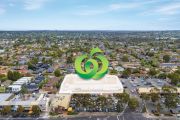
More pain to come for office tower values despite 20pc tumble
The values of office towers could fall even further despite losing more than 20 per cent already over the past two years, according to Macquarie analysts.
Since peaking halfway through 2022, office building values have lost 21 per cent in Sydney and 27 per cent in Melbourne, the analysts noted citing a JLL series. The sector has been punished by a combination of high interest rates, weak tenant demand and the rise of flexible work.

And despite the extent of those falls so far, the market outlook is still bearish, with the stock prices of major listed office landlords heavily discounted against their portfolio valuations.
Those discounts imply a 10-15 per cent fall in office asset values, according to Macquarie’s analysis of ASX-listed real estate investment trust stock prices.
“We believe further downside risk exists for valuations as returns based on book values are insufficient to meet the hurdle rates of return forinvestors,” Macquarie analysts wrote in a research note this month.
The stock price of Dexus, which has a 75 per cent weighting to office, is trading at a 17 per cent discount to its asset value. Smaller listed property funds with office portfolios such as Abacus and Growthpoint are trading 29 per cent and 22 per cent, respectively, below their portfolio values.
No cap rate rally expected
Whether or not the full extent of those implied trading discounts are ultimately realised in property valuations, Citi analysts also anticipate there is further to go in the devaluation cycle. Office values could take some time to recover even with expected interest rates relief.
Structural challenges will linger, including an oversupply of space that is locked in. Citi equity analyst Howard Penny said Sydney’s office supply was set to increase by 7 per cent over the next three years even though demand is not growing. As a result, the valuations of all but the very best office towers were unlikely to rebound in the short term.
Capitalisation rates – the commercial property sector’s valuation benchmark metric which indicates a buyer’s required return – were expected to remain elevated. Typically, the higher the cap rate and required return for an office asset, the lower its value.
“We don’t see cap rates expanding significantly more from here. But because fundamentals remain challenged, we don’t see the cap rates rallying with an interest rate cycle in the next year either,” Mr Howard said.
“The supply demand imbalance will continue to negatively impact the overall market of office and that will result, in our view, with higher vacancies and incentives persisting or for some time, unfortunately.”
Major tenants that reconsidering their office requirements – such as Westpac, ANZ and Baker McKenzie – are not planning to increase their footprints, according to Citi and office rental platform Cadigal.
Macquarie also expects only prime offices to gain in value over the next three years. Prime Brisbane office towers were expected to grow the most across all cities at 6.3 per cent, while Melbourne prime offices were only expected to grow 4.1 per cent.
Given the downside risk for all non-prime offices, Macquarie said office was its least preferred property exposure.
“Residential is our preferred sector with RBA rate cuts forecast through CY25 and tight supply and demand dynamics,” the analysts wrote.











